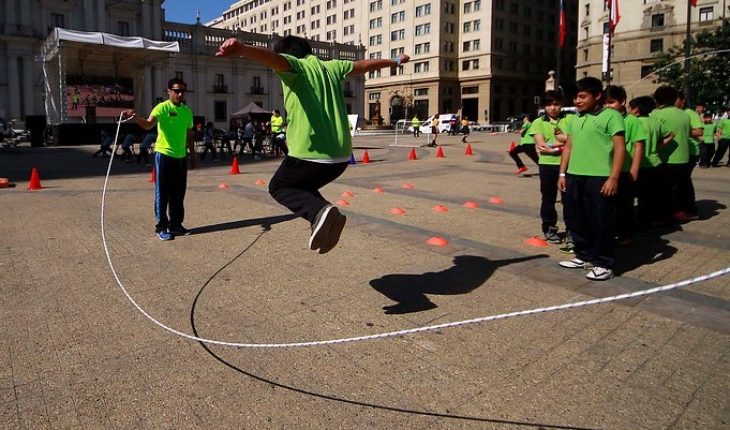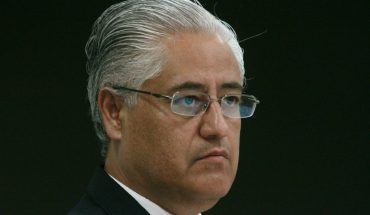For teachers of physical education working in public schools and lyceums of our country (called C On euphemism, vulnerable), it has become increasingly evident the difficulty of arousing the interest of children and young people in physical activity in general and, although it seems difficult to believe, in the game in particular. It is enough to observe some classes to realize that the students often stay out of the room or delay their participation in the activities that are proposed to them. The circuits, the repetitions, the exercises without contexts and explanations seem to have no meaning whatsoever for them, the cell phones that they cannot stop attending, and not to mention the absence of pleasure and enjoyment in the activity, because it is not permissible to speak loud or Laugh ‘ Cause we’re in class. Also, it usually happens that, the classes are suspended because the patio was flooded after a heavy rain, because there is restriction due to the preemergences, because there is SIMCE test, because… Physical education classes are suspendibles under various considerations, not mathematics or language.
There is also a strong curricular pressure and, now social, to take charge of public health problems such as sedentary lifestyle and its most immediate sequelae: overweight and obesity infanto-juvenile, as if the educational system, the Ministry of Education and The holders will give their physical education teachers the conditions to fulfill a mission of such magnitude. It is not a question of denying that physical activity carried out in a systematic way, well oriented and permanent is not a potent protective and health factor, nor is it a question of denying that physical education is the only subject that works the body and its movements , through games and sports. Rather, it is a question of what is the role of physical education in school? And from that reflection think about its quality.
First of all, it is possible to say that physical education is not a sequence of well-planned exercises to increase the energy expenditure of who performs them and manage to control their weight, increase their physical capacities or become an athlete. These may be some of their virtuous consequences, but they are not their purpose. And there is the confusion, there is the cause of the social reproaches, there is a conversation that must continue to be more and more broad and willing to change things.
Physical education in school should seek, first and foremost, to contribute to the formation of people. In order to do this, the students must develop a series of competencies and provisions in the form of habits that support the students in the journey that will lead them to become citizens with a body culture base, to build a form Of life not sedentary, active, healthy and pleasurable.
That physical education is centered, or should be, in the broad physical cultural development, means accompanying the students in understanding and valuing the care of their body in such a substantial care to a good life. To know and to develop its natural and technical movements, to strengthen its management in sporting activities, rhythmic and playful to discover the sense of team, collaboration and cooperation. That is recognised as a whole acting mind-body-environment, surpassing partial visions of human integrality. And, above all, the enjoyment of the movement and of being alive.
Physical education has the prerogative to build learning from the bodily experience of subjects. From it it is possible to affirm what neurosciences point to us more and more strongly: we do not have a body, but we are body, we are always that bodily experience and from it we build knowledge and learning of all kinds. To understand that we are incarnated mind, allows us to better grasp this daily experience of learning, knowing and experiencing, happening from, by and in the body. The mind-body-environment that we are, rather than being the object of learning, is the place from which these emerge, are meant and understood.
From this specificity, physical education contributes not only to its particular objectives as a subject, but also to the construction of a good school where children unfold their potential, as well as other curriculum subjects the Learning and students are at the center of their work. To do this, their professors and teachers must be learning specialists and not just organizers of exercise circuits, fitness animators, but professionals capable of organising adequate pedagogical devices, varied, challenging, meaningful To trigger, promote and evaluate the central component of school physical education.
This driving learning can be considered a journey through which, students increase, enrich and endow the value and meaning of their driving behaviors. Conducts in the culture and put into play in personal and social projects. In this sense the movement, and by way of consequences, the physical education itself implies: cognition-volition-emotion-action.
This vision of school physical education involves revitalizing the “pedagogical vows” of the teacher, the teacher. To defend loud and clear the spaces and times-increasingly reduced-of movement of children and young people. To make advocacy to the subjects of vital importance that conveys this discipline. Perhaps one of the most real possibilities of improving the quality of physical education in schools, considering the demand that gives the curricular mandate to take care of health without giving the conditions for it, whether teachers and Teachers who teach this subject are rediscovered with everything that led them to study this profession: freedom, body expression, agonism, pleasure of action,…
It is important to remember that joy comes when we can feel a substantial increase in the power to exist. Regaining that joy in the game, in the pleasure of being a body and moving, is the possibility to summon, activate and persevere in an activity. If we don’t get students to feel anything close to this in physical education classes, no educational goal can be achieved.
The content poured in this opinion column is the sole responsibility of its author, and does not necessarily reflect the editorial line or position of the counter.





